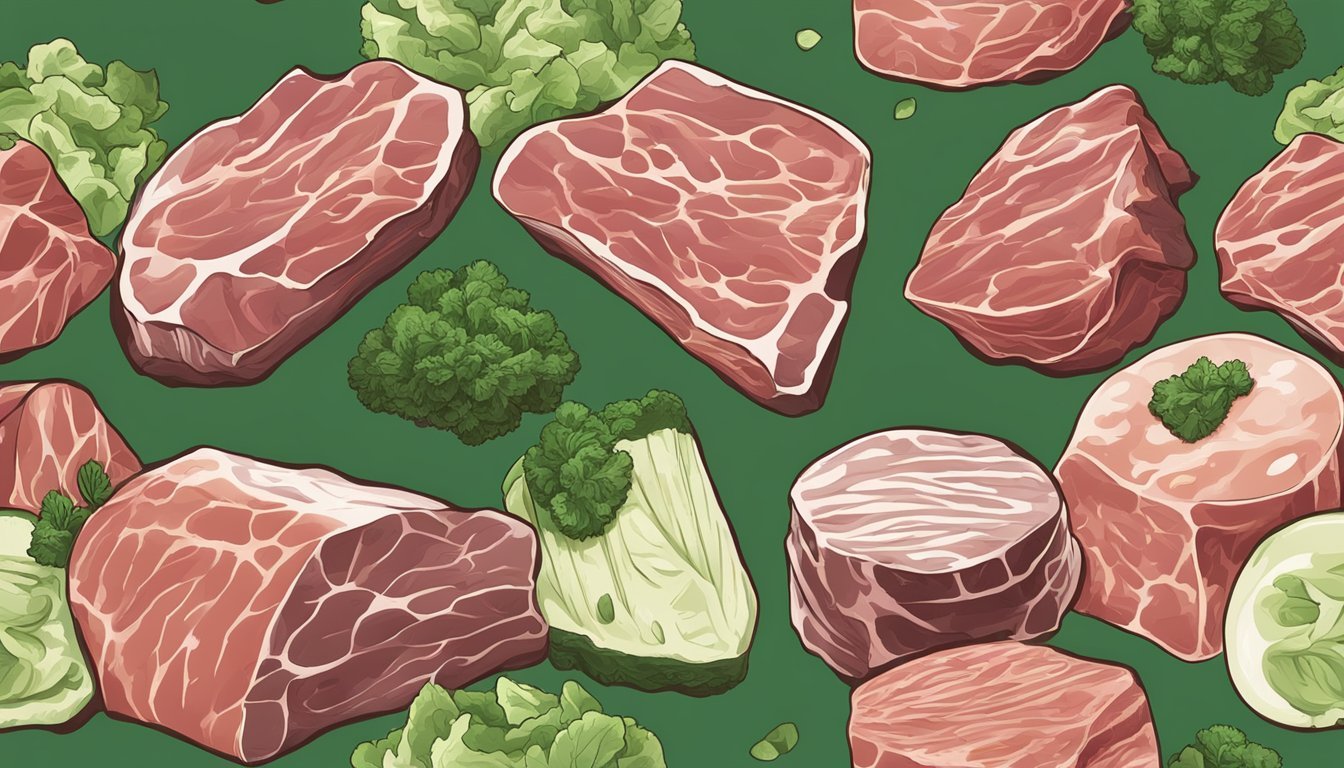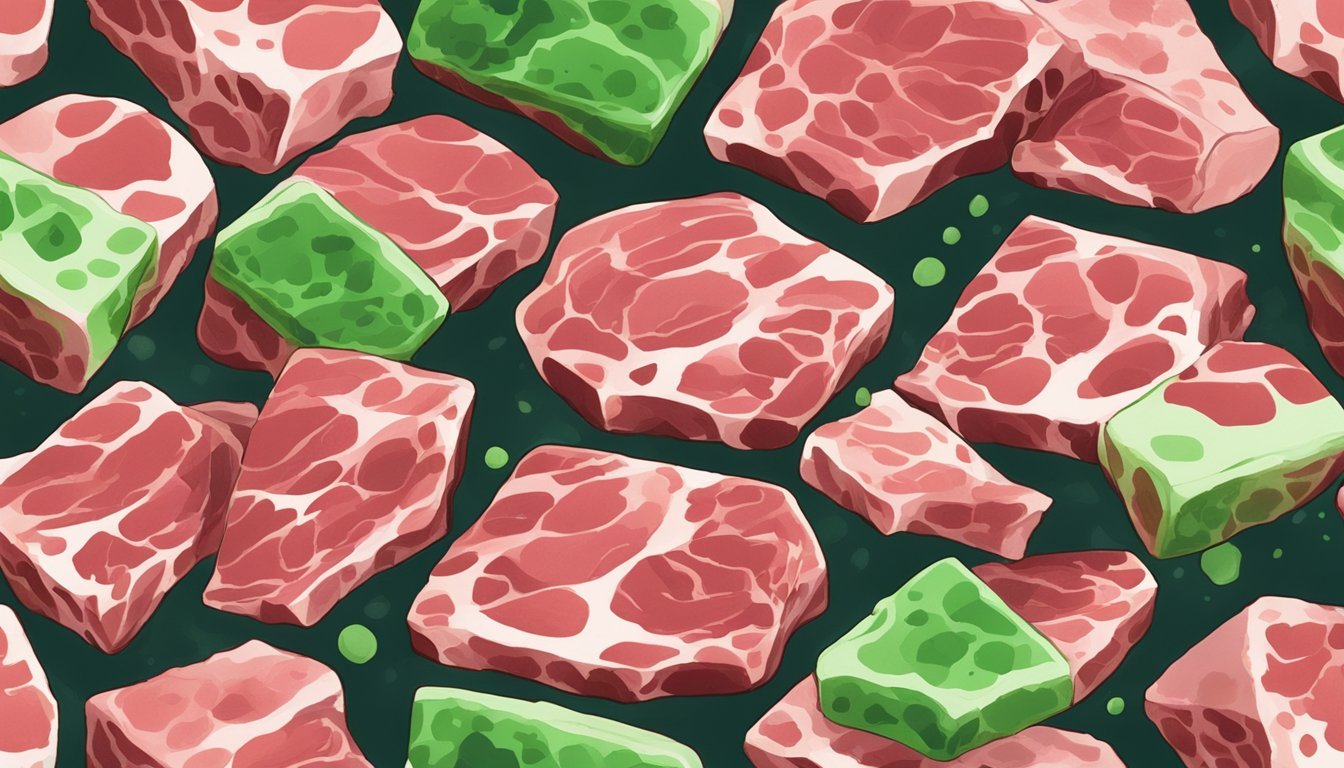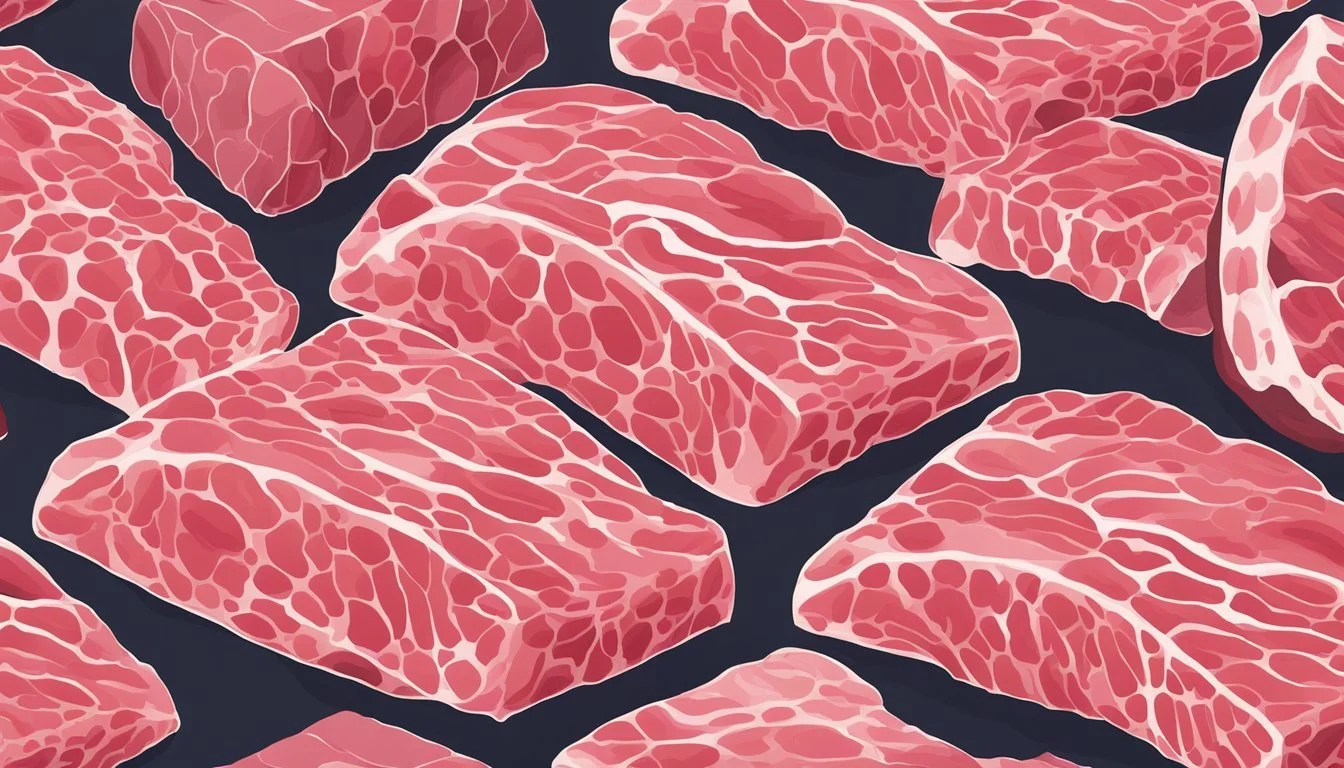Understanding the Risks of Solanine on a Carnivore Diet
Health Implications Explained
Many people exploring the carnivore diet are curious about the potential risks and benefits associated with this eating plan. The carnivore diet, which includes only meat, fish, eggs, and certain dairy products, is popular for its focus on animal-based nutrition. One significant consideration is understanding the risks posed by solanine, a natural toxin found in some plant foods, which the carnivore diet inherently minimizes due to its exclusion of plant-based items.
Solanine is primarily found in nightshade vegetables such as potatoes, tomatoes, and eggplants. This compound can cause digestive disturbances and other health issues if consumed in large quantities. By avoiding these vegetables, individuals on a carnivore diet may reduce their exposure to solanine and its associated health risks.
While the carnivore diet limits solanine intake, it is crucial to ensure that the diet provides all essential nutrients. Ruminant meats like beef and lamb, along with other animal products, are often emphasized for their nutrient density. This approach can support those seeking to improve health and manage existing conditions while mitigating risks tied to anti-nutrients found in plants.
What Is the Carnivore Diet?
The carnivore diet is a restrictive eating plan that focuses exclusively on animal products. It includes meat, fish, eggs, and certain dairy products. All plant-based foods, including fruits, vegetables, grains, nuts, and seeds, are completely excluded.
Key Components:
Meat: Beef, pork, lamb, and other red meats.
Fish: Salmon, sardines, and other fatty fish.
Eggs: Whole eggs, including yolks.
Dairy: Cheese, butter, and other high-fat dairy products (excluding milk).
Nutritional Breakdown:
This diet is high in protein and fats, including saturated fat. Carbohydrates are entirely absent.
Claimed Health Benefits:
Weight Management: Some proponents suggest it helps with weight loss and muscle gain.
Mental Health: Claims include improved mood and reduced symptoms of depression.
Risks and Considerations:
Due to its restrictive nature, this diet can lead to potential deficiencies in vitamins and minerals typically obtained from plant-based foods.
Solanine Basics
Solanine is a glycoalkaloid toxin found in certain plants. Understanding its chemical nature and common sources is crucial for individuals, especially those on specialized diets like the carnivore diet, to avoid potential health risks.
Chemical Nature of Solanine
Solanine is an alkaloid derived from glycoalkaloid family. Its chemical structure consists of a carbohydrate (sugar) bound to a steroid alkaloid. These components contribute to solanine's toxicity.
This compound is heat-stable and does not degrade appreciably during cooking. Symptoms of solanine poisoning include nausea, vomiting, and neurological disturbances such as headaches and dizziness. Toxicity is generally dose-dependent, meaning higher quantities of solanine intake result in more severe symptoms.
Solanine Sources
Potatoes and tomatoes are the primary sources of solanine in the diet. In potatoes, solanine levels are higher in green or sprouted parts. It is essential to peel green potatoes and remove any sprouts or eyes to minimize solanine intake.
Tomatoes, especially unripe ones, also contain solanine. Both fruits and vegetables like eggplants and bell peppers have varying levels of this toxin. Awareness of these sources helps in making informed dietary choices to avoid solanine exposure.
Risks of Solanine Consumption
Solanine, a toxic glycoalkaloid, can be harmful when consumed in significant amounts. This section details the acute and chronic health effects associated with solanine consumption, particularly for those on a carnivore diet.
Acute Toxicity
Acute solanine toxicity arises from consuming large quantities over a short period. Common symptoms include nausea, vomiting, and diarrhea. These gastrointestinal issues are often accompanied by abdominal pain and cramping.
Additionally, solanine can cause neurological symptoms like headaches, dizziness, and in severe cases, hallucinations. Immediate interventions include inducing vomiting and seeking medical attention to prevent complications. Individuals on a carnivore diet should minimize exposure by avoiding solanine-rich foods such as potatoes, tomatoes, and eggplants.
Chronic Health Effects
Long-term exposure to low levels of solanine may contribute to chronic health issues. Inflammation and arthritis are potential risks, as solanine can exacerbate inflammatory responses in the body. Joint pain and stiffness are common complaints, particularly in those predisposed to arthritis.
Moreover, solanine has been linked to disruptions in the intestinal microbiome, which can affect overall digestive health. Maintaining a solanine-free diet can help mitigate these risks, focusing on meat-based nutrition and avoiding nightshade vegetables to prevent chronic issues.
Nutritional Profile of the Carnivore Diet
A carnivore diet centers on animal products, predominantly meats, eggs, and fish, eliminating plant-based foods. This section examines macronutrient distribution, essential vitamins and minerals, and the impact of fiber exclusion.
Macronutrients in Focus
The carnivore diet is high in protein and fat while being almost devoid of carbohydrates.
Protein: Animal products provide complete proteins containing all essential amino acids necessary for muscle repair and growth. Common sources include beef, pork, chicken, and fish.
Fat: A significant portion of the diet comes from fat, primarily saturated fat. Sources such as beef tallow, lard, and butter contribute to energy intake. Monounsaturated and polyunsaturated fats from fish also play a role, particularly regarding omega-3 fatty acids.
Carbohydrates: Practically absent, leading to a heavy reliance on fats and proteins for energy, which can affect long-term adherence and metabolic pathways.
Get the best value for your money by purchasing tallow and lard online!
Vitamins and Minerals
Animal products on the carnivore diet offer various vitamins and minerals, vital for overall health.
Vitamins: B vitamins are abundant in meats, especially organ meats like liver. Beef liver is particularly nutrient-dense, providing high levels of vitamin A, vitamin D, and a range of B vitamins. Vitamin B12 is notably supplied by meats, crucial for nerve function and red blood cell formation.
Minerals: Key minerals include iron, zinc, and selenium, readily absorbed from meats. Ruminant meats like beef and lamb are rich in heme iron, which is more bioavailable compared to plant-based iron. Seafood offers additional minerals like iodine and magnesium.
Fiber and Its Absence
The elimination of plant-based foods results in a lack of dietary fiber.
Fiber plays an important role in digestive health and regular bowel movements, leading some to question the long-term impacts of its absence. Without fiber, the diet may lead to digestive issues for some individuals.
However, many proponents argue that a carnivore diet can still support a healthy digestive system through the consumption of collagen and other connective tissues found in animal products. Risks of inadequate fiber consumption include potential constipation and reduced gut microbiome diversity, which might have longer-term health implications.
When it comes to fiber supplement, online shopping is the way to go!
Health Benefits Versus Risks on Carnivore Diet
The carnivore diet is often promoted for its potential to support weight loss and manage type 2 diabetes, but it may also pose significant risks such as heart disease and cancer.
Weight Loss and Diabetes Control
Proponents of the carnivore diet claim it aids in weight loss by eliminating carbohydrates, which can help reduce blood sugar levels and insulin resistance. This may benefit individuals with type 2 diabetes as it supports better blood sugar control and weight management.
A diet focused solely on animal products, such as meat and eggs, often leads to a significant reduction in overall calorie intake, contributing to weight loss. Strictly following this diet can limit the range of consumable foods, thereby reducing the likelihood of overeating or consuming high-calorie snacks.
However, this diet's exclusions can sometimes lead to nutritional deficiencies. Essential nutrients such as fiber, vitamins, and minerals found in plant-based foods are absent, which might negatively impact long-term health.
Heart Disease and Cancer Risks
The carnivore diet can increase the risk of heart disease due to the high intake of saturated fats found in fatty meats, which may raise LDL cholesterol levels. Elevated LDL cholesterol is a known risk factor for heart disease.
There's also a concern that the lack of dietary fiber from fruits and vegetables can lead to an increased risk of cancer, particularly colorectal cancer. Dietary fiber is essential for maintaining digestive health and has been shown to reduce cancer risks.
While some advocate for the diet's purported ability to put certain illnesses into remission, medical experts caution against the high levels of red and processed meat, linking them to higher cancer risks. Thus, while the diet may offer some benefits, it carries significant health risks that must be carefully considered.
Carnivore Diet and Solanine Avoidance
The carnivore diet can help individuals avoid harmful substances like solanine, found in certain plant-based foods. By focusing on animal products, individuals can eliminate these toxins and potentially improve their overall well-being.
Eliminating Plant-Based Toxins
The carnivore diet is centered around consuming only animal-based foods such as meat, fish, eggs, and dairy products (if tolerated). This naturally cuts out plant-based toxins like solanine, which is found in nightshade vegetables such as potatoes, tomatoes, and eggplants.
Solanine has been linked to digestive issues, headaches, and other health problems. By avoiding these vegetables, individuals on the carnivore diet can reduce their intake of potentially harmful compounds.
Impact on Digestive & Overall Health
Eliminating solanine and other plant-based toxins may have positive effects on digestive health. Many people report reduced bloating, gas, and stomach discomfort when those foods are removed from their diet. Additionally, a carnivore diet can lead to more stable energy levels and fewer digestive disturbances.
The absence of plant-based foods, which some argue are inflammatory for certain individuals, might contribute to improved gut health. The carnivore diet focuses on nutrient-dense animal products, which can be easier for some people to digest and assimilate.
Implementing this diet requires caution and monitoring, as it is a highly restrictive approach. Consulting with a healthcare provider is advisable to ensure nutritional needs are met while avoiding potential pitfalls.
Expert Opinions and Research Findings
Research indicates varied effects of solanine on individuals adopting a carnivore diet, supported by both clinical studies and expert analyses. Below are the critical current research and professional insights from nutritionists and dietitians on this topic.
Current Research
Recent studies have focused on the potential health risks solanine presents, particularly for those on a carnivore diet. Research shows that solanine, predominantly found in nightshade vegetables, can cause gastrointestinal and neurological disturbances.
Experiments indicate that while solanine toxicity is rare, it becomes a concern when consumed in large quantities. Unlike plant-based diets, a strict carnivore diet may mitigate these risks, as it naturally avoids solanine-rich foods.
However, absence in these studies of widespread long-term research on solanine exposure within an entirely meat-based diet calls for more extensive inquiry.
Nutritionist and Dietitian Insights
Registered dietitians emphasize that a balanced diet generally prevents solanine toxicity. Professionals caution against the complete exclusion of plant-based foods, suggesting moderation and variety to harness both meat and plant nutrients healthily.
Nutrition experts argue that while the carnivore diet eliminates solanine, it might introduce other health risks such as nutrient deficiencies. Experts also underline the importance of clinical monitoring when major dietary changes are introduced.
Registered dietitians, pointing to existing nutritionally balanced diets, encourage careful scrutiny of any extreme dietary patterns. They advise consulting healthcare providers to tailor dietary plans that consider individual health profiles and food sensitivities.
Carnivore Diet in Practice
In practice, adopting a carnivore diet requires careful meal planning and a strategic selection of foods to ensure nutritional needs are met. Important considerations include balancing meat types, incorporating organ meats, leveraging dairy products, and possibly using supplements.
Meal Planning and Food Selection
A well-rounded carnivore diet typically includes a variety of meats such as beef, pork, chicken, and fish. Organ meats, like liver and kidneys, provide critical nutrients like iron and vitamin A that might be lacking in regular muscle meats. Both muscle and organ meats can be cooked in various ways, such as grilling, boiling, or baking.
Dairy products like cheese and butter are often included for additional fat and calories, although some may avoid them due to lactose intolerance or personal preference. Eggs are another versatile and nutrient-dense option, offering protein and essential fats.
To ensure all animal-based foods are covered, many individuals on this diet may consider supplements for nutrients like omega-3 fatty acids, which are abundant in fish but might still need reinforcement. Proper hydration with plain water and managing salt intake are also crucial aspects of this diet practice.
Trust me, the easiest way to buy omega-3 supplement is through online retailers!
Long-Term Considerations
Adopting a carnivore diet involves navigating long-term sustainability and understanding potential health impacts. Notably, addressing restricted dietary practices and the effects of high meat consumption on chronic disease risks is crucial.
Sustainability and Adaptation
Maintaining a restrictive diet like the carnivore diet can be challenging. Dietary monotony may lead to nutrient deficiencies as the diet excludes plant-based sources. These deficiencies could impact daily health and energy levels, making it difficult for individuals to stick to the diet long-term.
Furthermore, adapting to a strict all-meat diet can affect one's social life and dietary preferences. For example, shared meals and dining out options become limited, leading to potential isolation or frustration.
Potential Long-Term Health Impacts
The carnivore diet's exclusion of plant fibers can raise concerns about chronic disease risks. High intake of saturated fats may elevate the risk of cardiovascular diseases, obesity, and high blood pressure. Lack of antioxidants from plant foods may also contribute to inflammation and oxidative stress.
Additionally, absence of diverse nutrients might affect gut health. Without dietary fiber, individuals could experience digestive issues, which might lead to severe health concerns if unaddressed. Consuming adequate vitamins and minerals is crucial for long-term well-being and disease prevention.
Common Misconceptions and Debates
A widespread misconception about the carnivore diet is that it is a fad diet lacking scientific support. Critics often argue that eliminating plant-based foods can lead to nutritional deficiencies. However, proponents believe that animal products supply all essential nutrients needed for health.
Another debate revolves around the risk of solanine poisoning. While solanine is present in certain plants like potatoes and tomatoes, it is irrelevant to a carnivore diet that excludes these foods. Hence, concerns about solanine risks are misplaced for those on a meat-only diet.
The potential health benefits and risks are frequently debated. Advocates claim the diet can improve health by reducing inflammation and managing chronic conditions. Detractors, however, warn of potential kidney stress from high animal protein intake, which could raise calcium and uric acid levels, increasing the risk of kidney stones.
Lastly, the role of red meat in such a diet is contentious. While some believe red meat is unhealthy due to associations with heart disease, others argue that it is nutrient-dense and essential for optimal health on a carnivore diet. These conflicting views contribute to ongoing debates among health professionals and diet enthusiasts.
By addressing these misconceptions and debates, individuals can make more informed decisions regarding the carnivore diet.
Frequently Asked Questions
What is solanine, and why is it a concern?
Solanine is a natural toxin found in nightshade vegetables like potatoes, tomatoes, and eggplants. It can cause symptoms like nausea, diarrhea, and neurological problems if consumed in large amounts.
Is solanine present in animal-based foods?
No, solanine is not found in animal-based foods. Hence, those on a strict carnivore diet do not need to worry about solanine exposure.
How does high protein intake impact health?
A high protein intake can support muscle growth and repair. However, excessive amounts may strain kidneys, especially in individuals with pre-existing kidney conditions.
Can a carnivore diet lead to kidney stones?
Yes, the carnivore diet can increase the risk of kidney stones. The high intake of animal proteins can lead to higher levels of uric acid and calcium, potentially forming stones.
Is constipation a common issue on a carnivore diet?
Yes, constipation can be common due to the lack of dietary fiber, which is typically found in plant-based foods. Some individuals may also experience changes in bowel movements when first transitioning to this diet.
Are there any ways to prevent constipation on a carnivore diet?
Staying well-hydrated and incorporating foods like bone broth, which can aid in digestion, might help. Electrolyte supplements can also support bowel movements.
Does the carnivore diet affect nutrient intake?
The carnivore diet might lead to deficiencies in certain vitamins and minerals. Nutrients like vitamin C and fiber, primarily found in plant-based foods, could be lacking without proper supplementation.
Using tables or other formatted lists can aid in the clear presentation of information and is often advisable to ensure clarity.
















